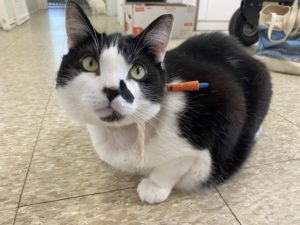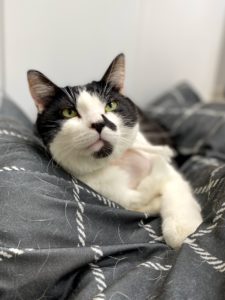Do pets realize they’ve been rescued? It’s a question we all ask ourselves.
Families will often share that their adopted dog, cat, or critter is the best pet they’ve ever known. Some say that pets seem to understand and love you all the more for it.
That certainly seems to be the case when it comes to Buster the kitty.

When Buster was first brought into the Dartmouth SPCA, he needed emergency care. One part of his recovery plan was a feeding tube to give medication and nourishment.
While Buster was recovering, he became the shelter cat who hung out in the office so he could be closely monitored. That’s when he locked eyes with Oliver, a dedicated animal care attendant.
“The first time I met Buster was one of my first days working for the SPCA,” Oliver reflected. “While Buster spent a lot of his time in his bed (he was so sick, poor baby), he often sat by the door and greeted anyone who entered the lunchroom. While he usually plays aloof, he secretly loves to be loved (such a cat!) and he’d let you pet him when you came through the door.”

Because of the beautiful bond they formed, Oliver knew that they needed to be the one to adopt Buster.
“The day we brought Buster home, we opened the carrier door and he slowly and cautiously came out,” Oliver explained. “Since the first day he’s been loving and affectionate, but we’re really seeing his personality come out week by week. He’s started sleeping with us on the bed, and he’s usually by either mine or my partners side at all times. From day one he was a great fit, but the more time passes the more personality we see; it’s so rewarding and I feel so lucky to get to witness this emergence.”
And now, because Buster has made such strides in his recovery, he no longer needs a feeding tube! Buster has a healthy appetite and lots of energy to get into… antics.
“One wall of our apartment is a screen, and we set up the projector to watch a movie,” Oliver laughed. “While popcorn was popping and the kettle boiling, I put on a live bird feed to see his reaction to these 3 feet birds. He stared quizzical for a few moments, swung his tail but quickly got bored and curled up on the couch. I went into the kitchen to grab the snacks and there was a thud. Running back into the living room, I see Buster on his back legs, his top legs STUCK in the screen, having attacked the birds. I stopped laughing long enough to unhook him from the wall, and he proudly returned to the couch, having vanquished the birds.”
Buster makes Oliver and their partner laugh, but he is also supportive for the hard moments in life. Working in animal welfare is rewarding, but it is also emotionally taxing.

“The best Busty moments are those points when things aren’t going well, and you’re sad or scared or worried and he’s just there,” Oliver smiled. “You pet him and put your hands under his warmth and he head butts you and grooms your hair and makes biscuits: even though we don’t speak the same language, it just feels like he’s telling you everything is going to be okay.”
“He helps so much,” Oliver continued. “Just having that love come to me everyday when I get home, his little meow as soon as I come through the door, the feeling of him curling up at my feet during self-care nights, and the smell of his fur when I’m burnt out and trying to come down from a stressful, difficult day.”
Oliver helped Buster when he needed it, and now Buster shows his appreciation by helping Oliver.
“He’s a great listener, and I tell him all my issues and talk out so many problems,” shared Oliver. “Having him around, knowing that no matter how bad my day is going, he’s waiting at home has been so good for my mental health. Buster is just the best cat in the world.”
